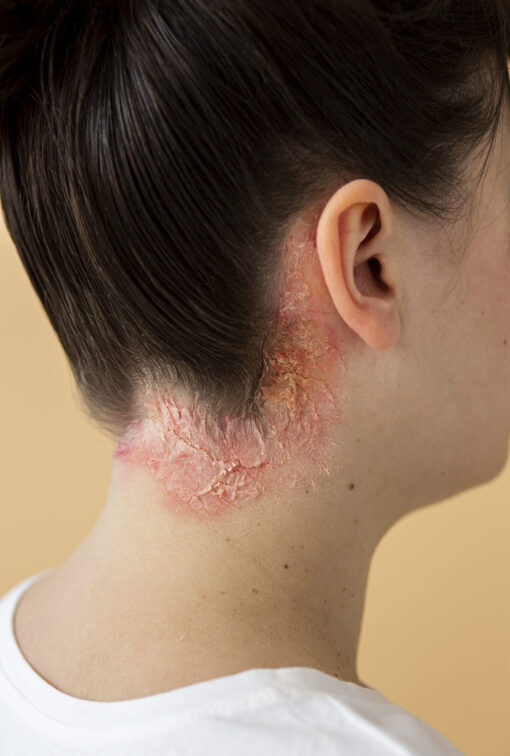Treatments Skin and hair conditions Dermatitis

Unlocking the Secrets of Dermatitis: Understanding, Managing, and Reclaiming Your Skin’s Health
"Homeopathy offers gentle and natural support for individuals suffering from dermatitis, a common skin condition characterized by inflammation and irritation. By understanding the unique symptoms and triggers of each individual, homeopathic remedies aim to stimulate the body's inherent healing mechanisms and restore balance from within. With its holistic approach, homeopathy strives to provide long-lasting relief by addressing the underlying causes of dermatitis and promoting overall well-being."
Dermatitis refers to a broad term encompassing various skin conditions characterized by inflammation and irritation. It affects millions of people worldwide, causing discomfort, itching, and redness. In this article, we will explore the different types of dermatitis, their causes, common symptoms, and available treatment options to help you better understand this condition.
Types of Dermatitis
1. Contact Dermatitis: Contact dermatitis occurs when the skin meets an irritant or allergen. The two primary types of contact dermatitis are:
a. Allergic Contact Dermatitis: This form of dermatitis arises when the immune system reacts to a specific allergen, such as certain metals (e.g., nickel), fragrances, latex, or chemicals. Symptoms include redness, itching, and the formation of small fluid-filled blisters.
b. Irritant Contact Dermatitis: Irritant contact dermatitis is caused by exposure to substances that damage or irritate the skin, such as detergents, solvents, soaps, or certain plants. It typically results in dry, red, and cracked skin.
2. Atopic Dermatitis: Atopic dermatitis, also known as eczema, is a chronic and inflammatory skin condition. It is often associated with a family history of allergies or asthma and can appear in early childhood or infancy. Atopic dermatitis is characterized by dry, itchy, and inflamed skin, with rashes commonly occurring in the creases of the elbows, knees, and neck.
3. Seborrheic Dermatitis: Seborrheic dermatitis mainly affects areas of the body rich in oil glands, such as the scalp, face, and chest. It causes redness, greasy or flaky skin, and itching. This condition can occur in infants (known as cradle cap) and adults, and it may be associated with a yeast overgrowth on the skin.
4. Nummular Dermatitis: Nummular dermatitis is characterized by the appearance of coin-shaped patches of irritated skin. It often occurs on the arms, legs, or torso. The exact cause is unknown, but it can be triggered by dry skin, cold weather, stress, or certain irritants.
5. Dyshidrotic Eczema: Dyshidrotic eczema is characterized by small, itchy blisters that primarily develop on the palms of the hands, soles of the feet, and sides of the fingers. The cause of this type of eczema is unclear, but it is associated with stress, allergies, and exposure to metals.
Causes and Triggers
The causes of dermatitis vary depending on the type, but common factors include:
Symptoms
While the symptoms may vary depending on the type of dermatitis, some common signs include:
Treatment Options
The treatment of dermatitis aims to alleviate symptoms, reduce inflammation, and prevent flare-ups. Here are some common treatment options:
Dermatitis is an inflammatory condition of skin by using above mentioned options symptoms can be alleviated but not treated. At Dr. Singh’s Homeopathy, we had treated various cases of different type of Dermatitis successfully. It is a completely treatable skin ailment.
Conclusion
Dermatitis encompasses various inflammatory skin conditions that can cause discomfort and affect the quality of life. Understanding the different types, causes, and triggers of dermatitis is crucial in managing the condition effectively. If you suspect you have dermatitis or are experiencing persistent symptoms, it is recommended to consult Dr. Singh’s Homeopathy for an accurate diagnosis and personalized treatment plan. With proper care, lifestyle modifications, and appropriate treatment, individuals with dermatitis can find cure and improve their skin health.

